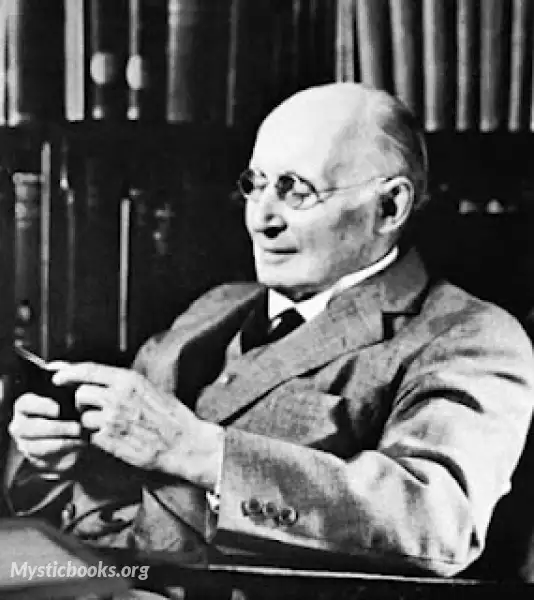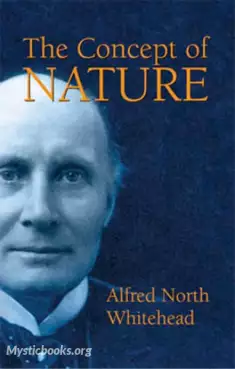
Timeline
Title
Country/Nationality
Alfred North Whitehead
Alfred North Whitehead was an English mathematician and philosopher. He is best known as the defining figure of the philosophical school known as process philosophy, which today has found application to a wide variety of disciplines, including ecology, theology, education, physics, biology, economics, and psychology, among other areas.
In his early career Whitehead wrote primarily on mathematics, logic, and physics. His most notable work in these fields is the three-volume Principia Mathematica (1910–1913), which he wrote with former student Bertrand Russell. Principia Mathematica is considered one of the twentieth century's most important works in mathematical logic, and placed 23rd in a list of the top 100 English-language nonfiction books of the twentieth century by Modern Library.
Alfred North Whitehead was born in Ramsgate, Kent, England, in 1861. His father, Alfred Whitehead, became an Anglican minister after being headmaster of Chatham House Academy, a school for boys previously headed by Alfred's father, Thomas Whitehead. Whitehead himself recalled both of them as being very successful school masters, with his grandfather being the more "remarkable" man.
Whitehead's mother was Maria Sarah Buckmaster. Her maternal great grandmother was Jane North (1776-1847); whose maiden surname was given to Whitehead, and several other members of his family over time. His mother, Maria Buckmaster had eleven siblings. The son of her brother Thomas, Walter Selby Buckmaster, was twice an Olympics silver medal winner for Polo (1900, 1908) for Britain, and is said to be "one of the finest polo players England has ever produced". Whitehead does not appear to have been close to his mother, although he and Evelyn (full name: Evelyn Ada Maud Rice Willoughby Wade), whom he married in 1890, are recorded in the English Census of 1891 as living with Alfred's mother and father. Lowe notes that there appears to have been mutual dislike between Whitehead's wife, Evelyn, and his mother, Maria.
Griffin relates how Bertrand Russell, a colleague and collaborator of Whitehead, was a very close friend of Whitehead and of his wife, Evelyn. Griffin retells Russell's story of how, one evening in 1901, "they found Evelyn Whitehead in the middle of what appeared to be a dangerous and acutely painful angina attack. ... [but] It seems that she suffered from a psychosomatic disorder ... [and] the danger was illusory." Griffin posits that Russell exaggerated the drama of her illness, and that both Evelyn and Russell were habitually given to melodrama. Intensity of emotion was encourgaged by their avant garde associates in the turbulent Bloomsbury Group which "discussed aesthetic and philosophical questions in a spirit of agnosticism and were strongly influenced by G.E. Moore’s Principia Ethica (1903) and by A.N. Whitehead’s and Bertrand Russell’s Principia Mathematica (1910–13), in the light of which they searched for definitions of the good, the true, and the beautiful "
Alfred's brother Henry became Bishop of Madras and wrote the closely observed ethnographic account Village Gods of South-India (Calcutta: Association Press, 1921).
Whitehead was educated at Sherborne, a prominent English public school, where he excelled in sports and mathematics[31] and was head prefect of his class.
In 1880, he began attending Trinity College, Cambridge, and studied mathematics. His academic advisor was Edward Routh. He earned his B.A. from Trinity in 1884, writing his dissertation on James Clerk Maxwell's A Treatise on Electricity and Magnetism, and graduated as fourth wrangler.
In 1890, Whitehead married Evelyn Wade, an Irishwoman raised in France; they had a daughter, Jessie, and two sons, Thomas and Eric. Thomas followed his father to Harvard in 1931, to teach at the Business School. Eric died in action at the age of 19, while serving in the Royal Flying Corps during World War I.
From 1910, the Whiteheads had a cottage in the village of Lockeridge, near Marlborough, Wiltshire; from there he completed Principia Mathematica.
The Whiteheads remained in the United States after moving to Harvard in 1924. Alfred retired from Harvard in 1937 and remained in Cambridge, Massachusetts, until his death on 30 December 1947.
Books by Alfred North Whitehead

The Concept of Nature
In The Concept of Nature, Alfred North Whitehead discusses the interrelatedness of time, space, and human perception. The idea of objects as 'occasions of experience', arguments against body-mind duality and the search for an all-encompassing 'philos...